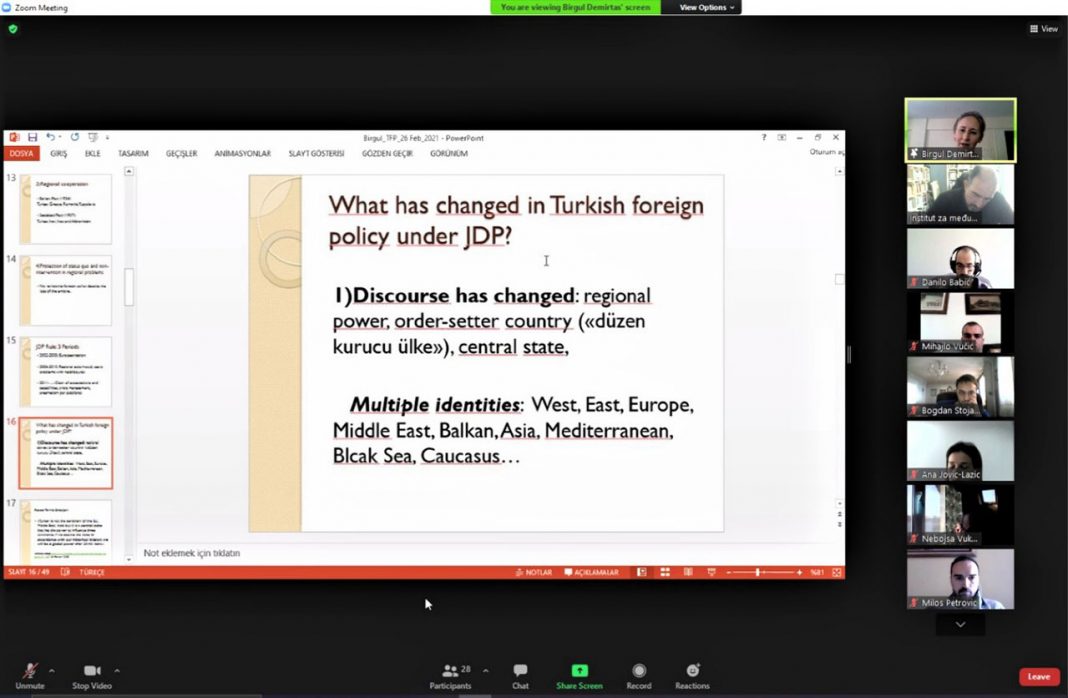The IIPE Centre for Eurasian Studies organised an online lecture “Rethinking Turkish foreign policy during the Kovid-19 pandemic: expectations, possibilities, ideas and pragmatism” delivered by Professor Birgul Demirtas, from the Faculty of Economics and Administration, Turkish-German University (Türk-Alman Üniversitesi). Professor Demirtas presented the genesis of the Turkish foreign policy after the Justice and Development Party came to power. She underlined that the rule of the Justice and Development Party is characterised by pragmatism and discontinuity of the Turkish passive role, which was based on the fundamental principles of neutrality and non-interventionism in regional conflicts. Currently, Turkish activism is grounded on the glorification of the Ottoman Empire, the harmonisation of foreign policy and domestic dynamics, as well as a unique geopolitical position. Professor Demirtas pointed out that during the Covid-19 pandemic, Turkey continues to pursue “soft power” policy through medical donations, which have so far been sent to 155 countries. Progressive Turkish trajectory in shifting global order may be decelerated by the arrival of the Joseph Biden administration, the democratic backsliding and the S-400 crisis. At the follow-up discussion, the most interesting issues tackled were Turkish strategic position in Central Asia, the Middle East, and the Balkans.
© Copyright 1996-2024. IIPE. All rights reserved


